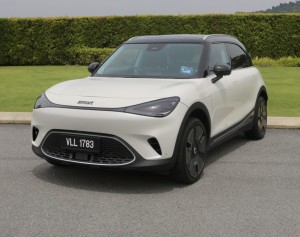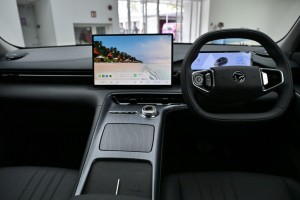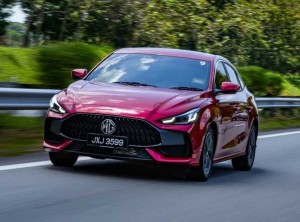EVs the way forward to green transition, reduces petrol dependence
By BERNAMA | 08 November 2024
KULIM: Electric vehicles (EVs) should be seen as a crucial step in Malaysia's green transition and a means to reduce national petrol consumption, according to Investment, Trade and Industry Deputy Minister Liew Chin Tong.
Liew emphasised that Malaysia’s focus should extend beyond the current level of petrol usage, highlighting the broader goal of electrifying the automotive sector to cut overall petrol consumption and position Malaysia as a net exporter of petroleum once again.
"There is a great urgency to populate Malaysian roads with EVs to deal with the various challenges we face, namely reducing the fiscal burden of petrol subsidies, re-establishing Malaysia as a net exporter of petroleum and building a more climate-friendly nation.
"For Malaysia to achieve energy security, we will have to restore Malaysia as a net exporter of petroleum. In 2022, Malaysia imported US$12.2 billion of crude petroleum,” he said during the launch of Chery Malaysia's OMODA E5, its first locally assembled vehicle here, today.
Liew said that in 2022 and 2023, the nation’s total amount of fuel subsidy (RON95, diesel and liquefied natural gas) stood at about RM50 billion, about one-eighth of the national budget.
He added that as of Sept 30 this year, there are 32,543 registered Battery Electric Vehicles (BEVs) on Malaysian roads, 98 per cent of which were imported as Completely Built-Up (CBU) units.
However, EV adoption in Malaysia lags behind neighbouring countries with BEVs representing just 1.2 per cent of total vehicle sales in 2023, while EVs count for 12 per cent of vehicles in Thailand, Vietnam (15 per cent), and Singapore (18 per cent).
"In 2023, Malaysia sold 799,731 cars, of which only 1.2 per cent were BEVs (10,159 units). Indonesia’s share of EV sales in 2023 was also at 1.2 per cent.
"At 1.2 per cent in 2023, and 2.6 per cent of total industry volume (TIV) in the first half of 2024, Malaysia is still quite far from the 20 per cent target for 2030.
"If we get our act together, Malaysia can also see the exponential growth of EVs on our roads in the next five years, reaching the target of EVs forming 20 per cent of TIV in 2030,” he said.
Meanwhile, Chery Auto Malaysia president Leo Chen noted that the launch of Omoda E5 Completely Knocked Down (CKD) units shows Chery’s commitment to improving local manufacturing capabilities, promoting Malaysia’s industrial growth, and contributing to the country's transition to a sustainable, electrified automotive future.
"By assembling our cars locally, it not only allows us to provide more competitive pricing but also signifies Chery’s long-term commitment in Malaysia, fostering job creation and skill development within the local workforce,” he said.
Chen added that the move also is in line with the government's policy of localisation compliance and supports Malaysia's ambition to become a regional hub for EVs.
Tags
Autos News
Reviews

8.8
smart #1 (Premium): Agile, engaging, roomy, premium motoring

6.6
Suzuki V-Strom 250 SX: Multi terrain warrior

Proton e.MAS 7 impresses in quick dynamic driving exercises

Nissan Kicks e-Power: Kicking off a new efficiency

6.8
Mercedes-Benz GLB 200: Measured versatility

MG5: Slick and comfortable cruiser

8.2
Kia EV9: Prime cut

8.0
Triumph Tiger 1200 GT Pro: High adventure on two wheels
Videos

The Snowball – Lamborghini’s Heartwarming Christmas Story of...

EVOGO battery swapping solution showcased at IAA Mobility 20...

Jaguar's Bold Type 00 Concept: A Glimpse into the Future of ...
